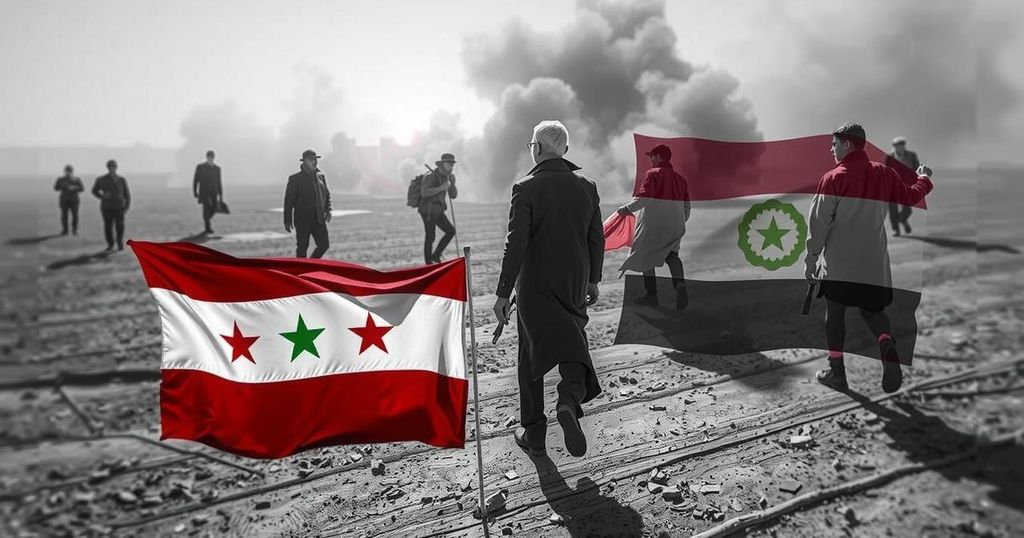Kurds in Syria Seek Concrete Support from Israel Amid Growing Turkish Threats

Kurds in Syria express concerns over their safety amid potential Turkish attacks, asking for concrete support from Israel, in light of past ethnic cleansing. With the SDF controlling significant areas against ISIS and enduring daily assaults from Turkish-backed forces, the Kurdish community hopes for meaningful international assistance to secure their rights and existence against regional threats.
On December 18, Gideon Sa’ar, the Israeli Foreign Minister, highlighted the necessity of international intervention to safeguard minorities in Syria, including the Kurdish community facing current threats. Many Kurds have expressed their desire for tangible support from Israel, rather than mere verbal affirmations. The Kurdish presence in eastern Syria remains tenuous, particularly with fears surrounding a potential Turkish offensive targeting Kurdish cities like Kobani, which has faced violence before. The 2018 assault on Afrin, leading to the displacement of over 150,000 Kurds, serves as a cautionary example of the dangers they currently face.
The Kurdish regions are mainly governed by the Autonomous Administration of North and East Syria (AANES), with its military force, the Syrian Democratic Forces (SDF). Formed with U.S. assistance to combat ISIS, the SDF comprises diverse groups, notably Kurdish fighters, who have successfully pushed back against the Islamic State. However, Turkey views the SDF as an extension of the PKK, a designated terrorist organization, and consequently has engaged in aggressive actions against these Kurdish forces, employing extremist militias known as the Syrian National Army (SNA).
The SDF, while securing significant territories along the Turkish border and critical locations such as Kobani and Raqqa with U.S. military support, contends with daily assaults from Turkish drones and mortar fire from the SNA. The situation has deteriorated further, complicating their strategic position amidst emerging governance in Damascus, which appears somewhat less hostile towards the Kurds than Turkey.
Amidst these challenges, the Kurdish community in Syria is turning their attention to Israel, questioning whether the nation will extend credible support beyond diplomatic statements. They are particularly wary of the revival of Turkish and Qatari-backed groups that echo strategies employed by Hamas. While there are speculations of discreet coordination between Israel and the SDF or the U.S.-led Coalition, Kurdish leaders remain anxious for concrete assistance. They seek mechanisms that may foster a ceasefire respected by Ankara and a reconsideration of U.S. military presence.
Kobani, a symbol of Kurdish resistance against ISIS, stands as a focal point of concern for the Kurds. Turkish silence during the ISIS siege and its subsequent border encroachments highlight the precariousness of the situation. Kurds are imploring for Israel’s backing, emphasizing the critical need for external support to ensure their survival and protection from further ethnic cleansing by Turkey and its allied militias.
The article discusses the plight of the Kurdish population in Syria, particularly in light of increasing threats from Turkey and its allied militias. Following the formation of the Syrian Democratic Forces (SDF) in 2015, which played a crucial role in combating ISIS, the rights and safety of Kurds remain in jeopardy as Turkish forces seek to undermine their autonomy and territorial control. The complex geopolitical dynamics involving international stakeholders, especially the U.S., Turkey, and now potentially Israel, frame the urgent need for Kurdish advocacy and defense.
In summary, the Kurdish community in Syria is facing urgent threats from Turkish aggression and the actions of allied militias. With the historical context of violence against Kurds, their calls for support from Israel represent a desperate plea for protection. The complexities of international relations and regional politics further complicate their request, but the future of the Kurdish people in Syria may hinge on the response they receive from global powers, including Israel.
Original Source: www.jpost.com








